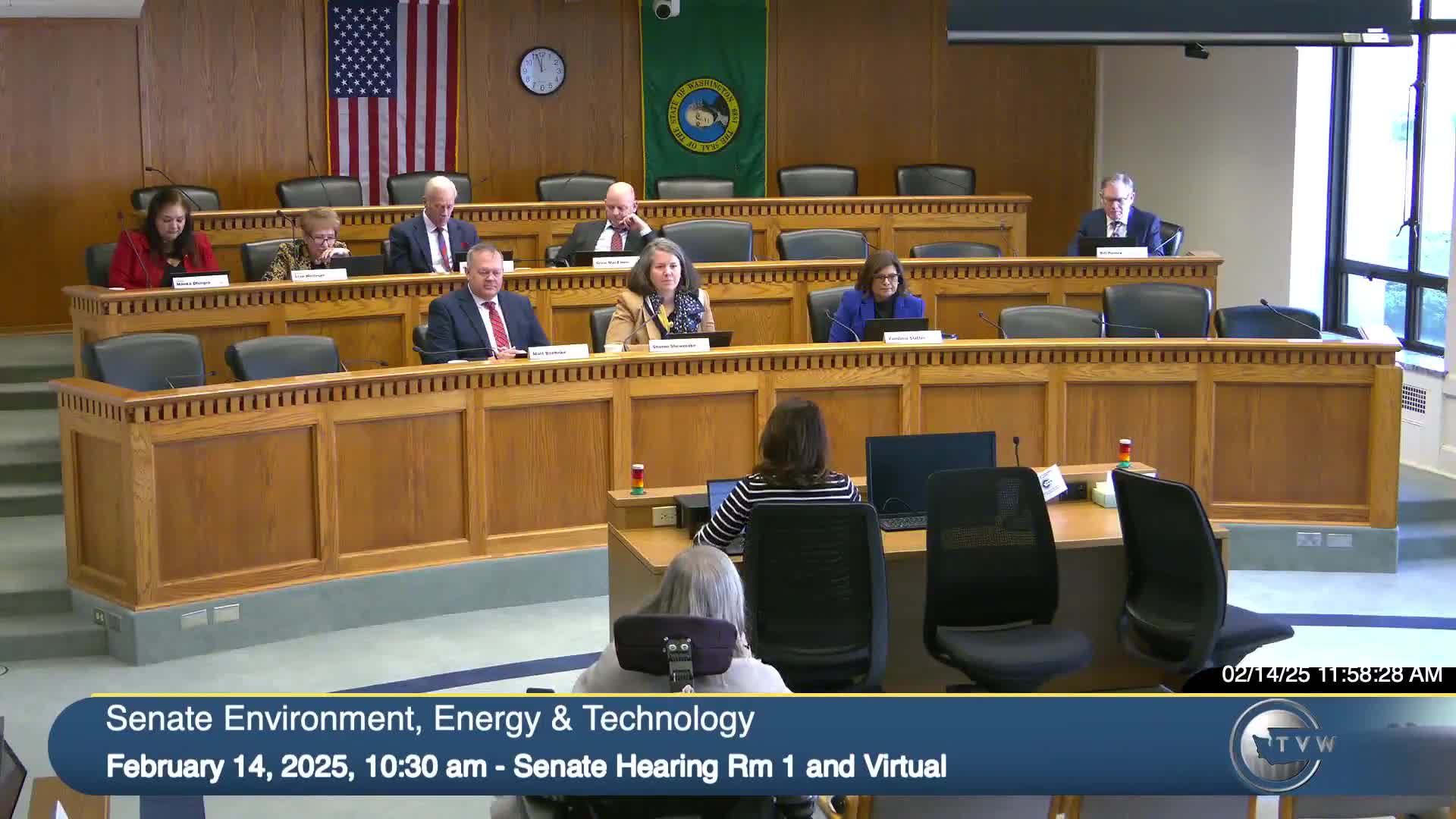Right-to-repair bill for mobility equipment draws emotional testimony from wheelchair users and advocates
Get AI-powered insights, summaries, and transcripts
Subscribe
Summary
Senate Bill 5680 would require manufacturers to provide parts, diagnostics and information on fair and reasonable terms to wheelchair users or independent repair providers. Testimony focused on long repair waits, individualized equipment, and safety harms from delays.
Senate Bill 5680 would require original equipment manufacturers of mobility devices to make parts, documentation, embedded software, firmware and tools available on “fair and reasonable terms” to independent repair providers and owners. Committee staff explained the bill as a wheelchair-focused right-to-repair measure modeled in part on other state statutes and federal Magnuson‑Moss warranty rules.
Why it matters: Witnesses described long repair wait times that leave users immobile and at risk of pressure injuries, medical complications and social isolation. Multiple wheelchair users and advocates urged the committee to pass the bill, saying local or independent repair options could restore mobility far faster than centralized manufacturer repair shops.
Hearing highlights
- Marcia Cutting, vice chair of the Governor’s Committee on Disability Issues and Employment, described months-long delays and a lack of certified technicians, noting one manufacturer’s shop held her four-year-old chair for weeks without repair; she urged passage so family and local technicians can help: “Most of us have mechanically inclined family and friends who could do these repairs if they had access to the schematics, parts, and tools.”
- Several family members and users, including Krista Burke testifying for her son and Nathan Proctor (a national right-to-repair advocate), said surveys show large shares of wheelchair users require repairs annually and many face multi‑week waits; Proctor cited a 2022 survey in which 93% needed a repair in a year and 68% waited four or more weeks for service.
- Providers and volunteer mechanics said lack of schematics and access to parts forces otherwise-repairable chairs into the scrap pile; a volunteer group in Bremerton reported refurbishing and loaning more than 100 power chairs last year but said it discarded at least 60 due to unavailable schematics or parts.
What the bill would do (staff summary)
- Require an original equipment manufacturer to make documentation, parts, embedded software, firmware, or tools available to independent repair providers or owners on fair and reasonable terms (the bill lists exceptions for unavailable parts, trade secrets, and information provided to authorized repair providers). - Enforcement would be by the Attorney General under the state Consumer Protection Act.
Positions and concerns
- Disability advocates, users and repair volunteers strongly supported the bill, arguing it reduces the time people spend without mobility and lowers landfill waste from discarded chairs.
- Witnesses urged careful drafting to preserve safety and protect trade secrets but said the bill’s exceptions allowed manufacturers to withhold truly unavailable components and proprietary secrets.
The committee took public testimony from wheelchair users, family caregivers, right-to-repair advocates and volunteer mechanics. No committee vote was recorded during the hearing; sponsors and witnesses requested additional engagement on technical language and enforcement details.
